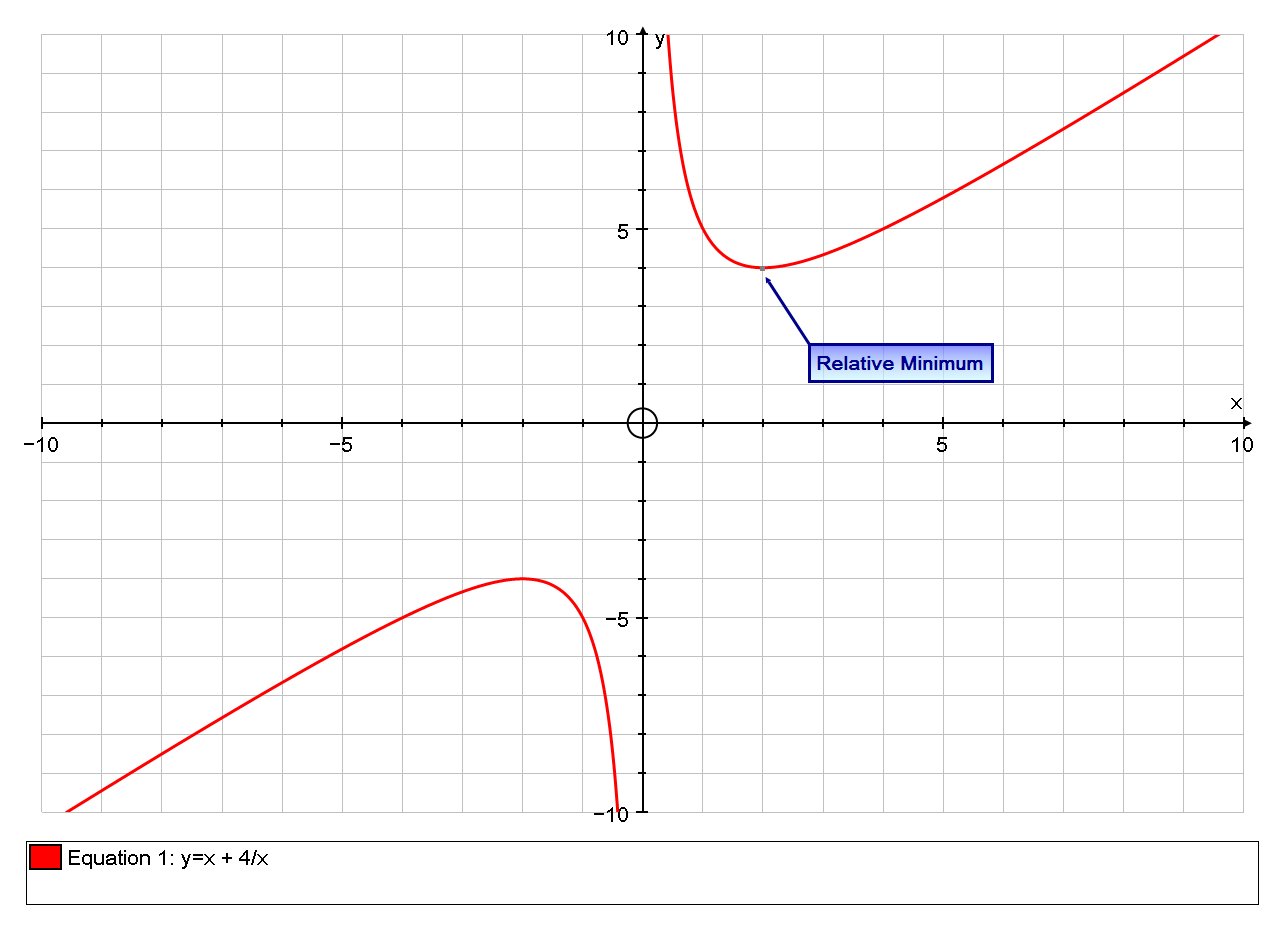For what value of #k# will #x+k/x# have a relative maximum at #x=2#?
2 Answers
There is no such
Explanation:
Let
the
In order for
However,
There is a relative minimum when
Explanation:
Let
#f(x) = x+k/x#
Then differentiating wrt
# f'(x) = 1 - k/x^2 #
And differentiating again wrt
# f''(x) = (2k)/x^3 #
the
At a maximum or minimum we require
# f'(2)=0 => 1 - k/2^2=0#
# :. 1-k/4 = 0#
# :. k = 4#
So When
Now let's find the nature of this critical point. With
# f''(2) = ((2)(4))/2^3 > 0 # , Hence this a relative minimum



